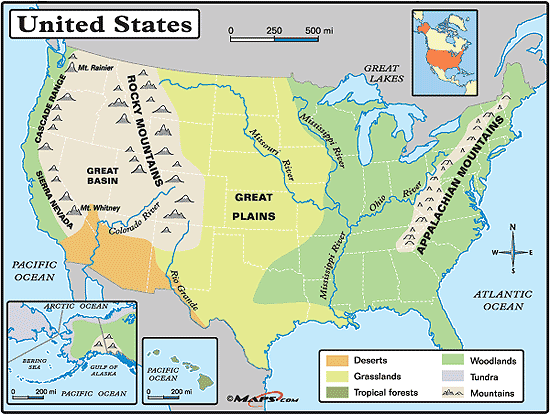Louisiana Purchase
The History Cat Classroom
Let's Make A Deal
The story of the Louisiana Purchase reads like the plot of a bad soap opera. The Louisiana Territory- the land west of the Mississippi River to the Rocky Mountains (excluding the American southwest) - was owned by France at the outbreak of the French and Indian War in 1756. But, after it became obvious that France was going to lose that war to Britain it promised to hand over the land to its long time ally, Spain.
Fast forward to 1804, and a military genius by name of Napoleon Bonaparte is busily overthrowing the out of control French Republic, making himself emperor. Napoleon wastes no time in waging war in Europe for world domination. Part of this plan involves creating an empire in North America and so Napoleon forces his Spanish allies to give Louisiana back to France. U.S. Napoleon doesn't just reoccupy the Lousiana Territory but begins threatening the United States that it might be cutting off access to New Orlans and the Mississippi River.
President Thomas Jefferson totally freaks out upon hearing this new-- A French Empire in America could only mean trouble for the United States. So, Jefferson planned to form a secret alliance with our old enemy Britain against our old allies, the French.
In response to Napoleon's scheming Jefferson quickly gathers a diplomatic team and sends them off to Paris with a letter asking to buy the port city of New Orleans that would keep the Mississippi River open to American trade. However, negotiations drug on throughout 1802 and into 1803.
The reason that Napoleon was such an eager beaver to abandon his plans for a North American empire you ask? Well, there are two reasons actually. The first was that the island of Haiti (then called Saint Dominique) was a profitable sugar colony in the Caribbean that was fighting for its survival against one of the biggest slave rebellions in history. The slave revolution began in 1791 and by 1803 it was obvious that this colony and its income would not be in French hands for much longer. (Haiti gained its independence in 1804). With the loss of Haiti, Napoleon would lose a major port which was an important trade link to New Orleans.
Secondly, Napoleon was fighting a war with Britain and Austria and needed the cash for his campaigns in Europe more than he needed a North American Empire.
I do not hesitate in giving the opinion, that it is almost wholly unfit for cultivation, and of course, uninhabitable by a people depending upon agriculture for their subsistence. Although tracts of fertile land considerably extensive are occasionally to be met with, yet the scarcity of wood and water, almost uniformly prevalent, will prove an insuperable obstacle in the way of settling the country
-Major Stephen :Long. 1823




Sioux Camp in the 1890s
Test Page





